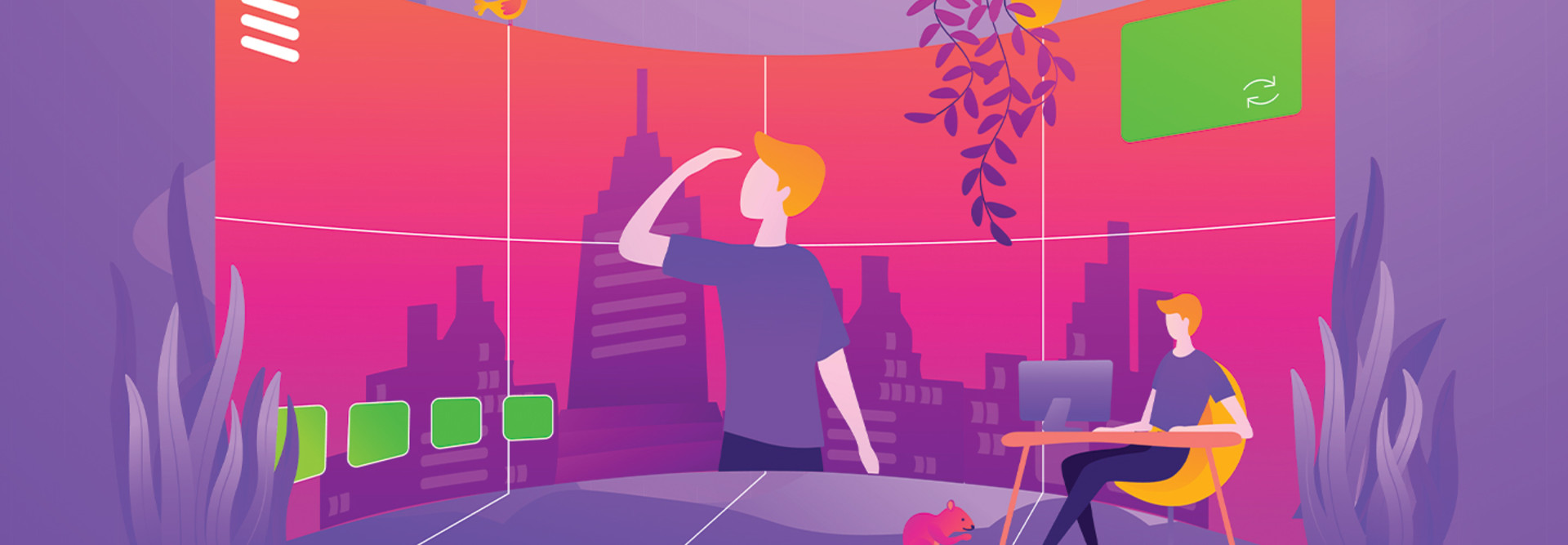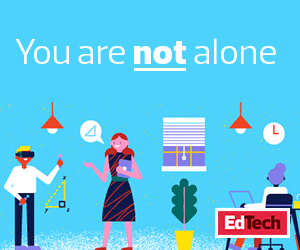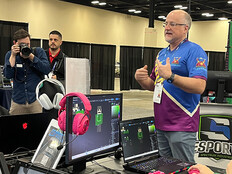4 Ways Colleges Are Using Tech to Reach Prospective Students
In the absence of in-person tours and sessions, high schools and colleges have to be innovative. Here’s how some are working together and using technology to provide students with other options.
- Recording campus tours: With the help of 360-degree cameras, college counselors can take prospective students on an interactive campus tour without anyone needing to leave the comfort of their homes. These cameras allow users to walk around a room or location and capture their surroundings. David Wu, director of international programs at Eagle’s Landing Christian Academy in Atlanta, used 360-degree cameras and drones to record video tours of 100-plus college campuses across the country, including Harvard University, Michigan State University and Stanford University. To make the experience more immersive, students can watch the videos with virtual reality headsets, which will help them feel as if they’re actually walking across campus or sitting inside a lecture hall.
- Leveraging videoconferencing tools: Many colleges are also using videoconferencing platforms to welcome prospective students. For example, Davidson College in North Carolina is using Zoom to offer 60-minute live information sessions and guided campus tours led by two current students. High school seniors can also learn more about the daily life of a Davidson student by connecting with them through live Q&A sessions held on Zoom.
- Experimenting with virtual and game-based platforms: Another option is to bring college open houses to virtual event hosting platforms. The Idaho State Board of Education recently partnered with the Idaho State Department of Education’s GEAR UP Idaho program and Idaho Career and Technical Education to deliver a three-day virtual college fair using a platform called vFairs. On vFairs, students can stop by virtual booths and interact with college staff from schools including Boise State University and the University of Idaho. Some college students have also built replicas of their campuses on Minecraft that have been used for social events and open houses as well.
- Connecting with mobile technology: College counselors can also introduce students to mobile applications that help connect students with recruiters. For instance, the California College Fair used an app called Ping to match students with colleges based on their interests and qualifications. All students have to do is take a short quiz on their school preferences before, during or after a virtual college fair, explains Casey Welch, CEO of the app’s parent company, Tallo. Recruiters fill out a similar quiz, which the app uses to match them with students. Students can easily contact college recruiters afterward to get more information about the application process or campus life.
By offering virtual options, college counselors and recruiters can continue helping students who are navigating the college search process, even if students are unable to attend an in-person campus visit.
MORE ON EDTECH: Find out why school districts should embrace virtual job fairs.











